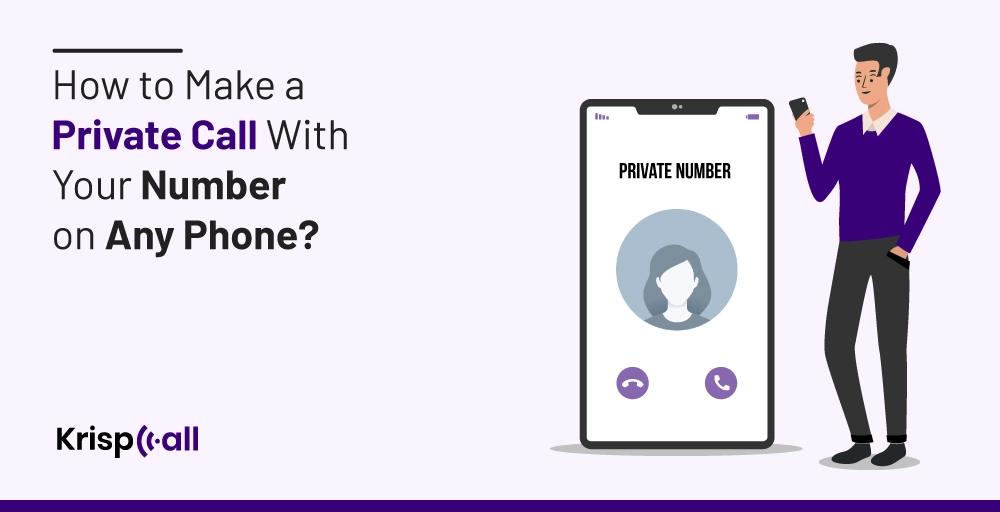How Do You Make A Private Phone Call: A Comprehensive Guide To Secure Communication
In today's digital age, making private phone calls has become more important than ever. With increasing concerns about data privacy and security, people are looking for ways to ensure their conversations remain confidential. Understanding how to make a private phone call is not only essential for personal communication but also for professional environments where sensitive information is shared.
Privacy is no longer a luxury but a necessity. Whether it's discussing business strategies, sharing personal details, or protecting classified information, secure communication plays a crucial role. This guide will delve into the steps and tools necessary to make your phone calls private, ensuring that your data remains protected from prying eyes.
From understanding the basics of encryption to exploring advanced privacy tools, this article will equip you with the knowledge to safeguard your conversations. Whether you're a tech enthusiast or a casual user, this guide will provide actionable insights to enhance your phone call privacy.
Understanding the Importance of Private Phone Calls
Private phone calls are vital in an era where data breaches and cyber threats are prevalent. When discussing sensitive topics, it's crucial to ensure that your conversation remains secure. Privacy in communication is not only about protecting personal information but also about maintaining trust in professional relationships.
According to a study by Pew Research Center, a significant percentage of individuals are concerned about their online privacy. This concern extends to phone calls, where unauthorized access can lead to severe consequences. By understanding the importance of private phone calls, you can take proactive steps to protect your data.
Steps to Make a Private Phone Call
Choose the Right Platform
Selecting the right platform is the first step in ensuring privacy. Not all communication tools offer the same level of security. Look for platforms that provide end-to-end encryption, ensuring that only the sender and receiver can access the conversation.
- End-to-end encryption ensures that only the sender and receiver can decrypt the message.
- Popular platforms like Signal and WhatsApp offer robust encryption features.
- Avoid using platforms with questionable security practices.
Use Secure Networks
Using secure networks is another critical step in making private phone calls. Public Wi-Fi networks can be vulnerable to hacking, making your conversations susceptible to interception. Always use a trusted network or a Virtual Private Network (VPN) to enhance security.
- Public Wi-Fi networks are not always secure.
- A Virtual Private Network (VPN) encrypts your internet connection, adding an extra layer of security.
- Ensure your device's security settings are up to date.
Understanding Encryption: The Backbone of Private Calls
Encryption is the process of converting information into a code to prevent unauthorized access. In the context of private phone calls, encryption ensures that your conversation remains confidential. Understanding how encryption works can help you make informed decisions about the tools you use for secure communication.
End-to-end encryption is particularly effective because it encrypts the data on the sender's device and decrypts it only on the receiver's device. This means that even if the data is intercepted, it cannot be read without the decryption key.
Popular Tools for Making Private Phone Calls
Signal: A Leader in Secure Communication
Signal is one of the most trusted platforms for making private phone calls. Developed with privacy in mind, Signal offers end-to-end encryption for both calls and messages. Its open-source nature allows experts to audit its security features, ensuring transparency and reliability.
- Signal uses advanced encryption protocols to secure conversations.
- It is available on both Android and iOS platforms.
- Signal does not store call records or metadata, enhancing user privacy.
WhatsApp: A Widely Used Option
WhatsApp is another popular choice for secure communication. While it may not be as privacy-focused as Signal, WhatsApp also offers end-to-end encryption for calls and messages. Its widespread adoption makes it a convenient option for many users.
- WhatsApp's encryption is powered by the Signal Protocol.
- It supports group calls with encryption features.
- WhatsApp is available globally, making it accessible to a wide audience.
Best Practices for Ensuring Call Privacy
Adopting best practices is essential for maintaining privacy during phone calls. Even with secure platforms, user behavior plays a significant role in ensuring data protection. Here are some tips to enhance your call privacy:
- Regularly update your communication apps to benefit from the latest security patches.
- Be cautious when sharing your phone number on public platforms.
- Use strong passwords and enable two-factor authentication (2FA) wherever possible.
Legal Considerations in Private Phone Calls
Understanding the legal aspects of private phone calls is important, especially in professional settings. Laws regarding data protection and privacy vary across jurisdictions, so it's crucial to be aware of the regulations in your region. For example, the General Data Protection Regulation (GDPR) in the European Union sets strict guidelines for handling personal data.
Always ensure that your communication practices comply with local laws and regulations. Consulting with a legal expert can provide clarity on the specific requirements in your area.
Common Threats to Phone Call Privacy
Despite the availability of secure platforms, several threats can compromise the privacy of your phone calls. Understanding these threats can help you take preventive measures. Some common threats include:
- Eavesdropping: Unauthorized interception of calls.
- Malware: Software designed to disrupt or gain unauthorized access to devices.
- Social Engineering: Manipulating individuals into divulging confidential information.
By staying informed about these threats, you can better protect your communication from potential risks.
Future Trends in Private Phone Calls
The landscape of private communication is continually evolving. With advancements in technology, new tools and methods are emerging to enhance call privacy. For instance, the integration of artificial intelligence (AI) in communication platforms can improve security features by detecting and mitigating threats in real-time.
Additionally, the rise of decentralized communication networks promises to provide even greater privacy by eliminating central points of control. As technology progresses, staying updated on these trends will be essential for maintaining secure communication.
How to Educate Others About Private Phone Calls
Raising awareness about the importance of private phone calls is crucial for promoting a culture of digital privacy. Educating others involves sharing knowledge about secure communication tools and best practices. Here are some ways to educate others:
- Host workshops or webinars on digital privacy.
- Create informative content, such as blog posts or videos, explaining the importance of private calls.
- Encourage the use of secure platforms among friends, family, and colleagues.
Conclusion
Making a private phone call is essential in today's digital world. By understanding the importance of privacy, choosing the right tools, and adopting best practices, you can ensure that your conversations remain secure. From encryption to secure networks, the steps outlined in this guide provide a comprehensive approach to enhancing your call privacy.
We encourage you to take action by implementing these tips and sharing this knowledge with others. Leave a comment below to share your thoughts or ask questions. Additionally, explore our other articles for more insights on digital privacy and security.
Table of Contents
- Understanding the Importance of Private Phone Calls
- Steps to Make a Private Phone Call
- Understanding Encryption: The Backbone of Private Calls
- Popular Tools for Making Private Phone Calls
- Best Practices for Ensuring Call Privacy
- Legal Considerations in Private Phone Calls
- Common Threats to Phone Call Privacy
- Future Trends in Private Phone Calls
- How to Educate Others About Private Phone Calls
- Conclusion


